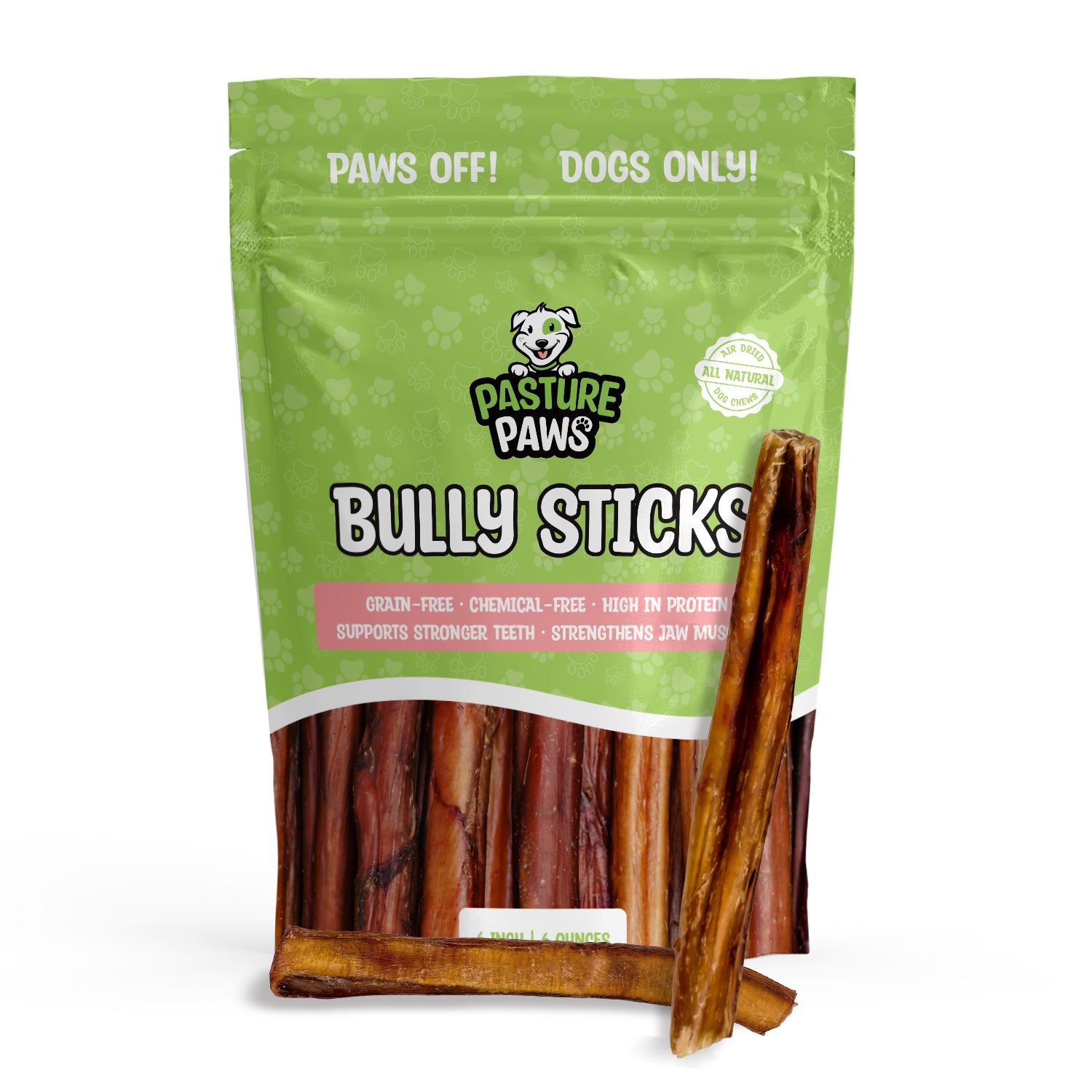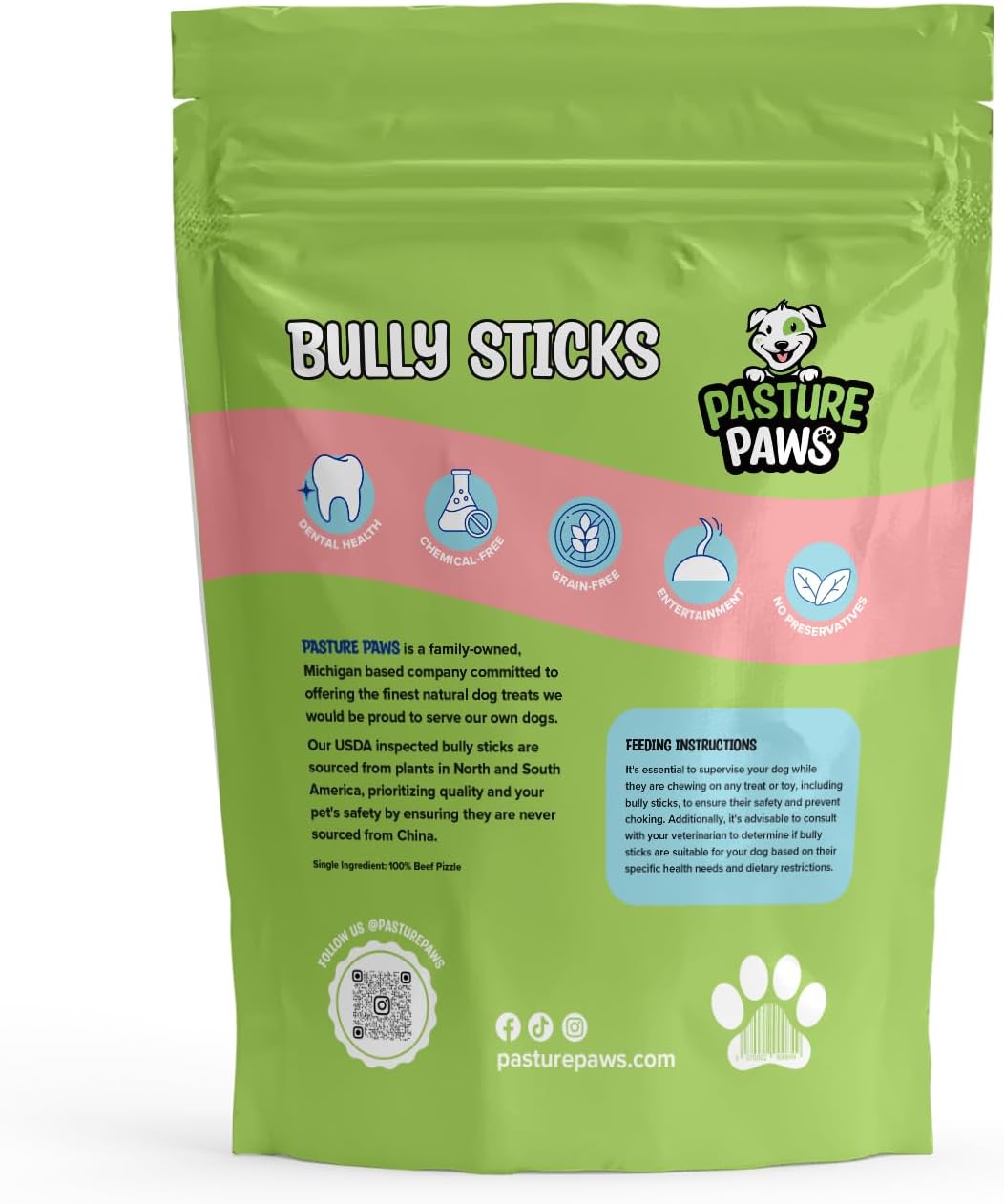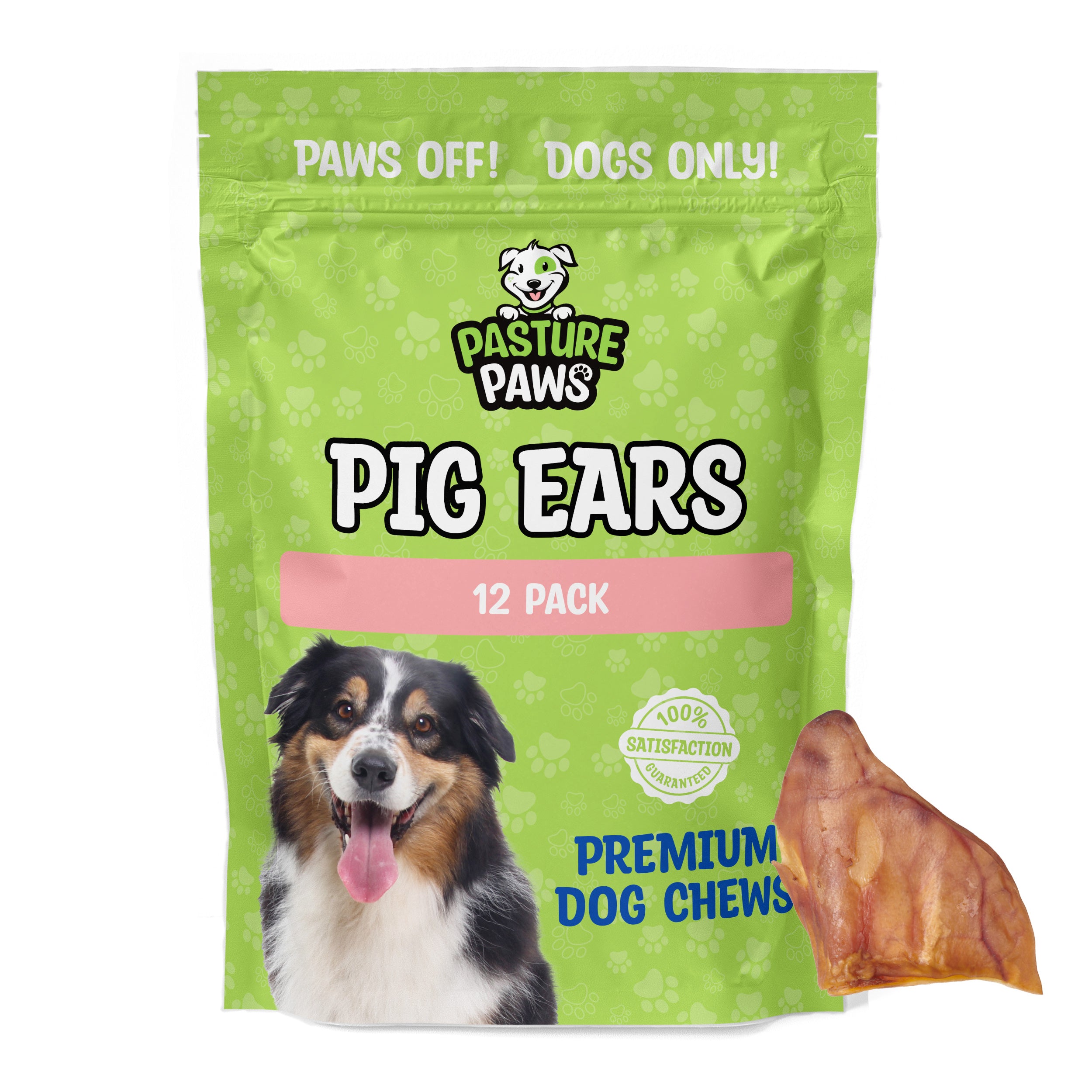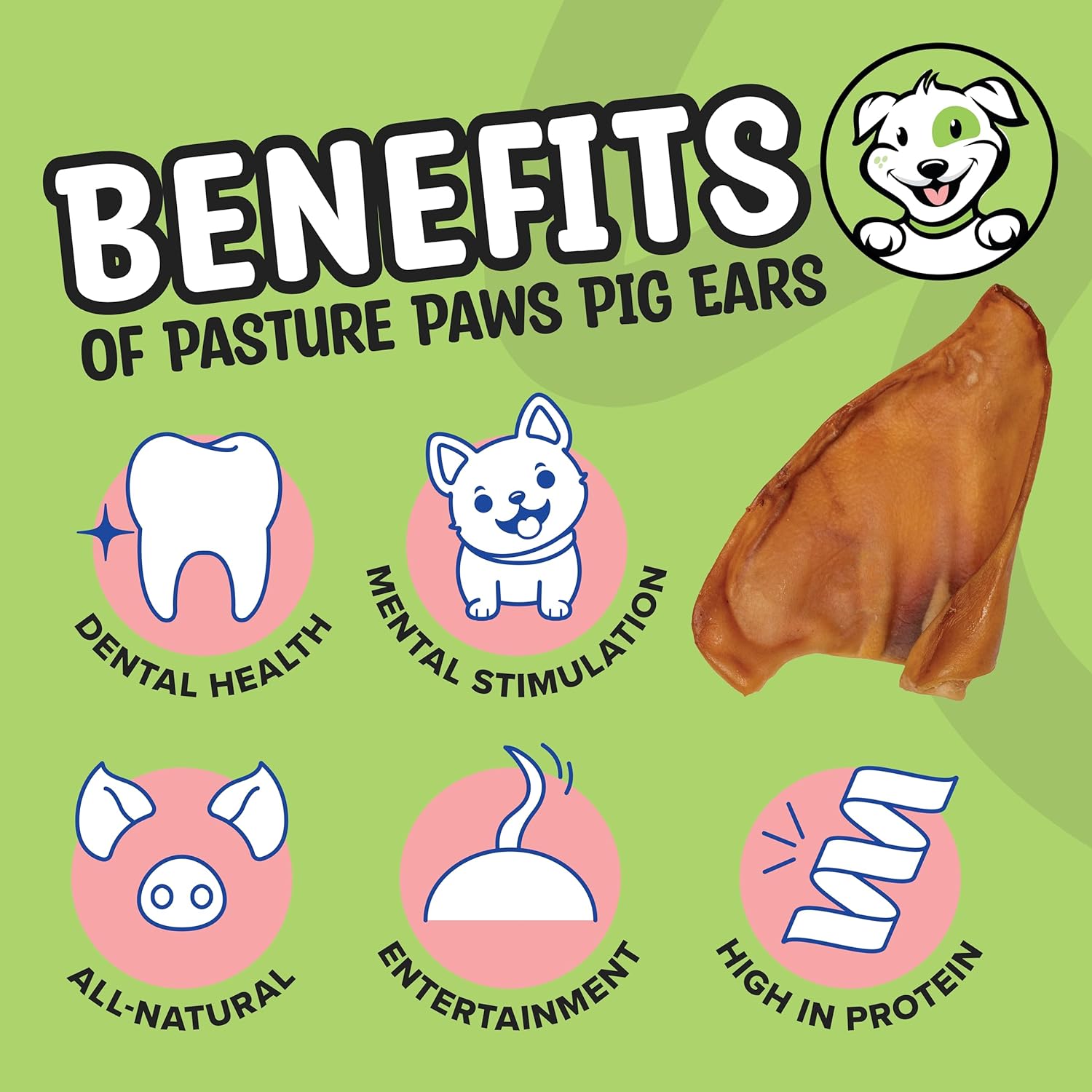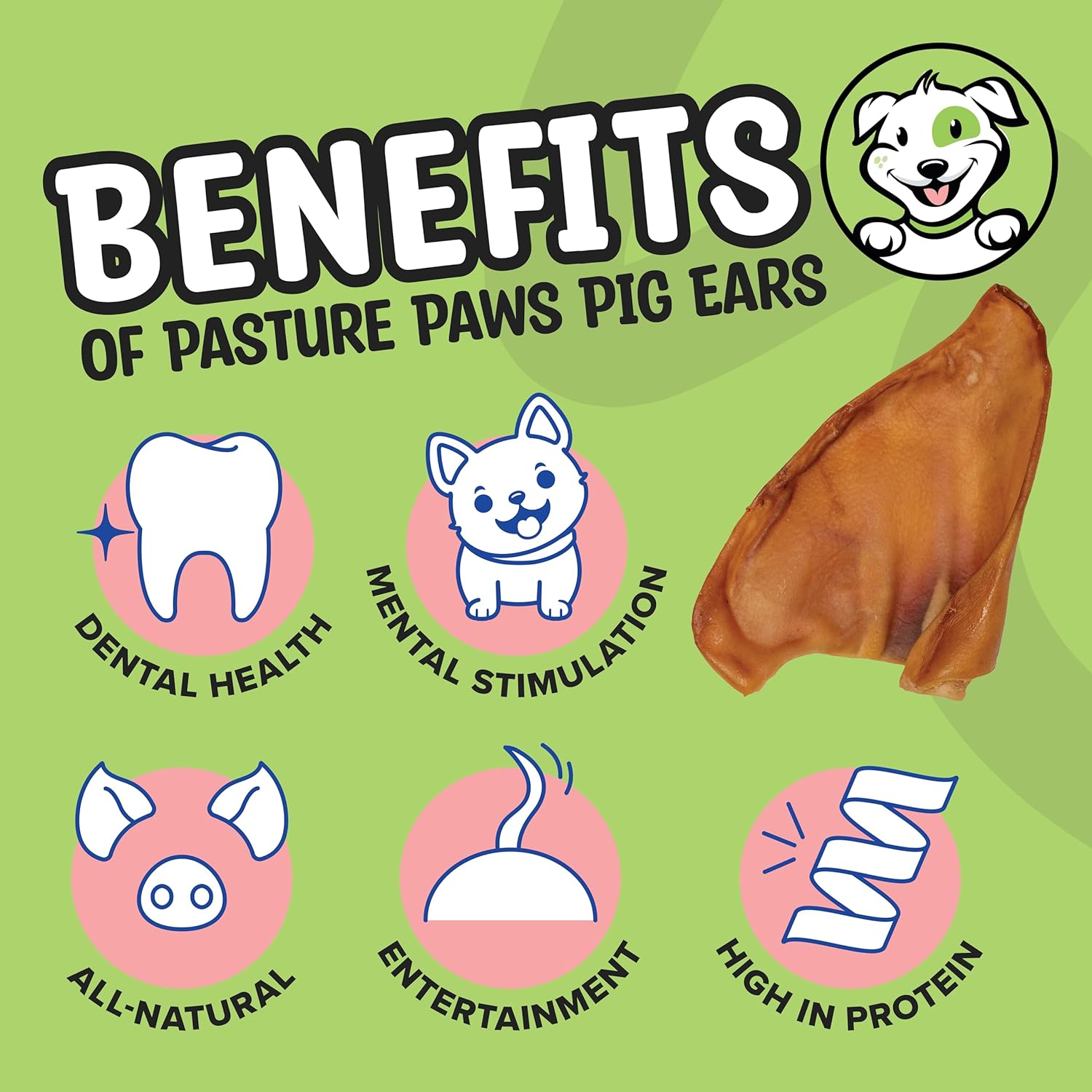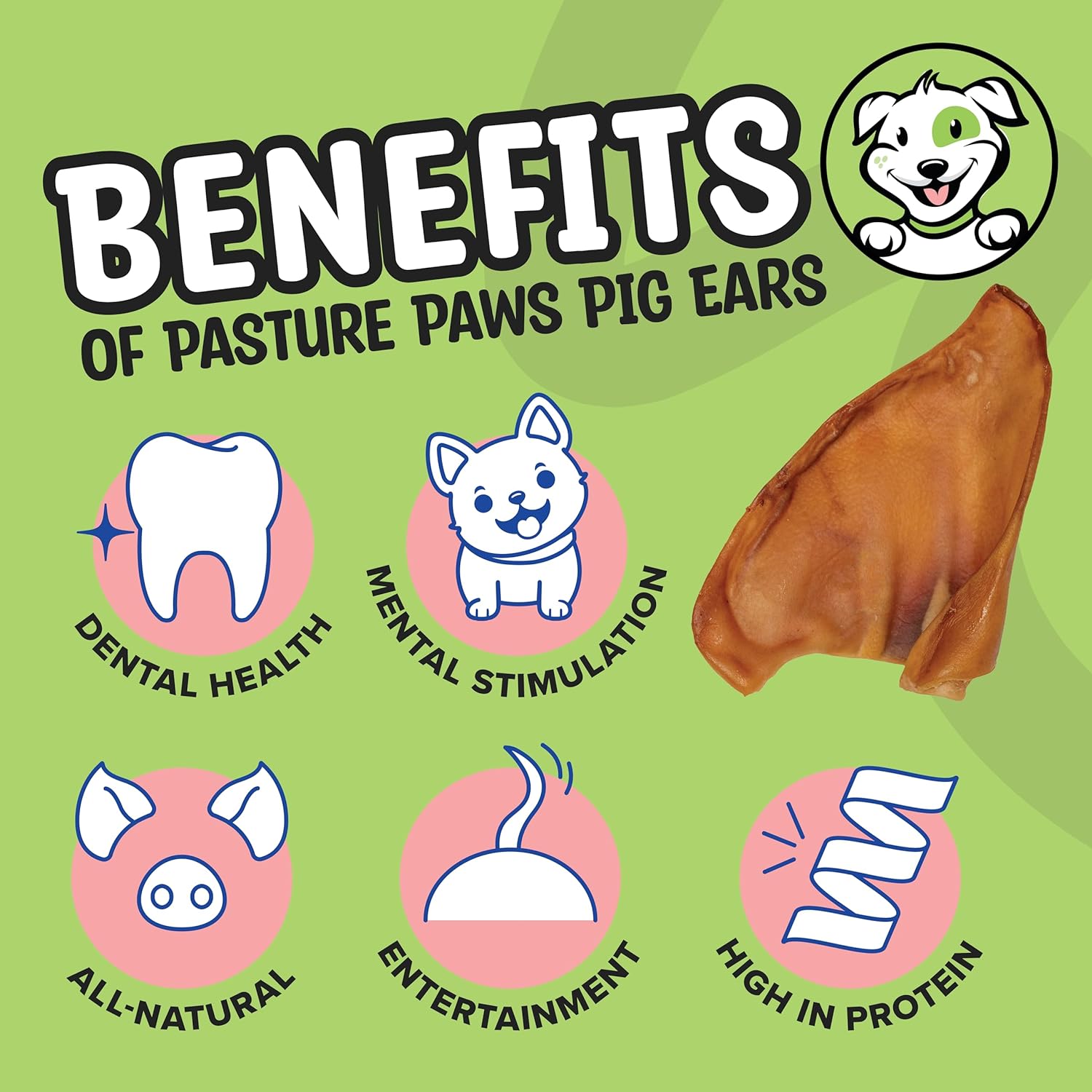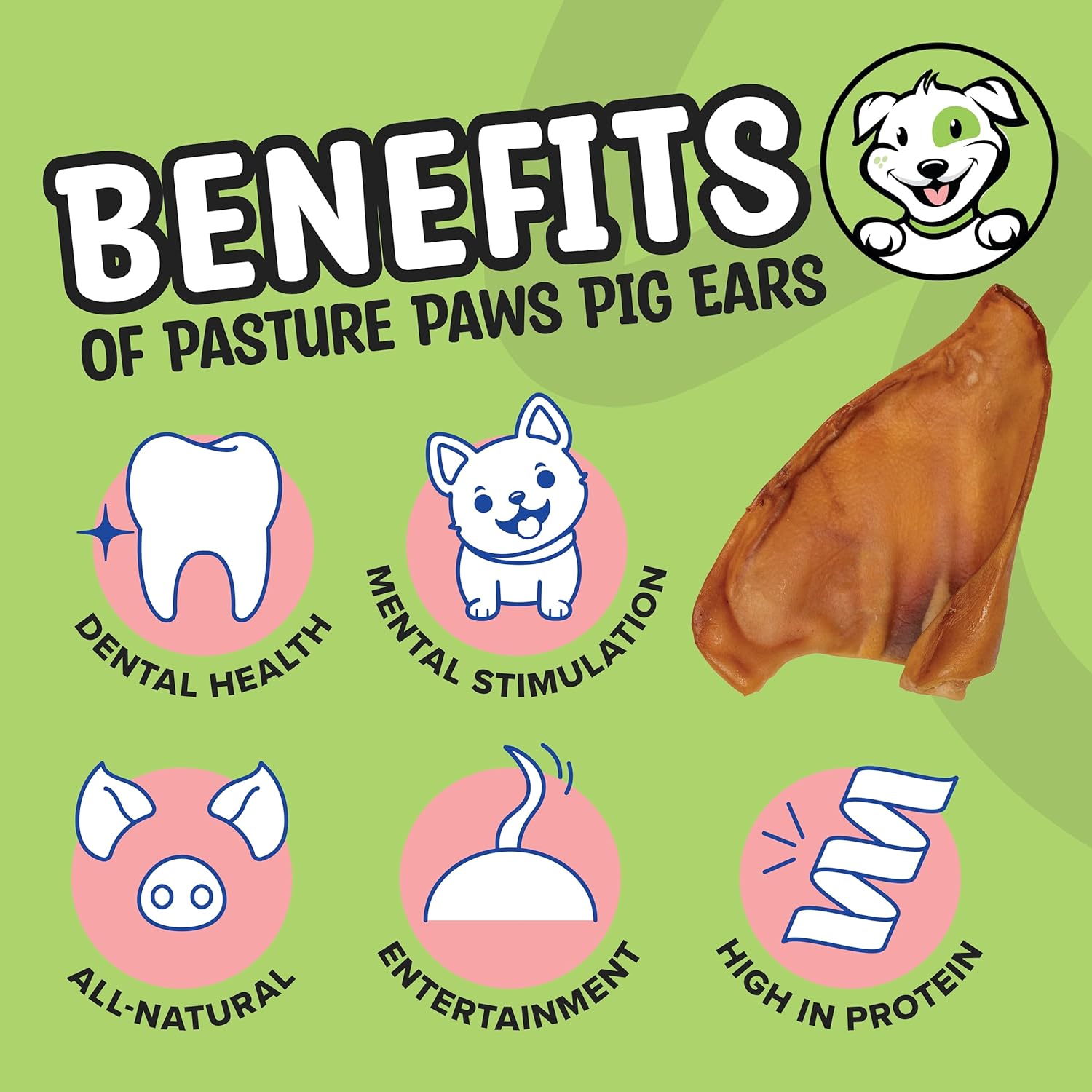If you're a dog owner, you've probably heard about dental chews for dogs. These treats are marketed as a way to improve your dog's oral health by reducing plaque and tartar buildup. But do dog dental chews actually work?

While dental chews can be a convenient and tasty way to supplement your dog's dental care routine, they are not a substitute for regular teeth cleaning. According to experts, brushing your dog's teeth is still the gold standard for maintaining good oral health. However, dental chews can help reduce plaque and tartar buildup between brushings when used as part of a comprehensive dental care plan.
So, if you're wondering whether to invest in dental chews for your furry friend, it's important to understand their limitations. While they can be a helpful tool in promoting good oral health, they should not be relied upon as the sole means of dental care for your dog. With regular brushing and professional cleanings, along with the occasional dental chew, you can help keep your dog's teeth and gums healthy for years to come.
Understanding Dog Dental Chews

Dental chews are a popular way to promote oral health in dogs. They are designed to help keep your dog's teeth clean and healthy, and can be an effective way to control plaque and tartar buildup. In this section, we will discuss what dental chews are, how they promote oral health, and their role in plaque and tartar control.
What Are Dental Chews?
Dental chews are specially designed treats that are meant to be chewed slowly and thoroughly. They come in different shapes, sizes, textures, and consistencies, and are made from a variety of ingredients. Some dental chews are made from natural ingredients like vegetables, while others are made from synthetic materials.
Dental chews work by mechanically removing plaque and tartar from your dog's teeth. As your dog chews on the treat, the abrasive texture helps to scrape away any buildup on the teeth. Some dental chews also contain enzymes that help to break down plaque and tartar, making it easier to remove.
How Dental Chews Promote Oral Health
Dental chews promote oral health in several ways. First, they help to keep your dog's teeth clean and free of plaque and tartar buildup. This can help to prevent tooth decay, gum disease, and other oral health problems.
Second, dental chews can help to strengthen your dog's teeth and gums. Chewing on the treats helps to exercise the muscles in your dog's jaw, which can help to keep their teeth and gums healthy and strong.
Finally, dental chews can help to freshen your dog's breath. Many dental chews contain ingredients like mint or parsley that help to neutralize bad odors and keep your dog's breath smelling fresh.
The Role of Dental Chews in Plaque and Tartar Control
Dental chews play an important role in controlling plaque and tartar buildup in your dog's mouth. Plaque is a sticky film of bacteria that forms on the teeth, and can lead to tooth decay and gum disease if left untreated. Tartar is a hard, yellowish-brown substance that forms when plaque hardens on the teeth.
Regular brushing and professional cleanings are the most effective ways to control plaque and tartar buildup in your dog's mouth. However, dental chews can be a helpful supplement to these methods. By mechanically removing plaque and tartar from your dog's teeth, dental chews can help to keep their mouth healthy and clean between cleanings.
In conclusion, dental chews can be an effective way to promote oral health in dogs. They work by mechanically removing plaque and tartar from your dog's teeth, and can help to strengthen their teeth and gums, freshen their breath, and control plaque and tartar buildup. However, it's important to remember that dental chews are not a substitute for regular brushing and professional cleanings.
Evaluating Dental Chew Effectiveness
When it comes to evaluating the effectiveness of dental chews for dogs, there are a few key factors to consider. In this section, we will explore some of the most important considerations, including the VOHC Seal of Acceptance, ingredients and their functions, and clinical studies and veterinary recommendations.
VOHC Seal of Acceptance
The Veterinary Oral Health Council (VOHC) is an organization that evaluates oral care products for dogs and cats. Products that meet their standards for effectiveness can receive the VOHC Seal of Acceptance. When evaluating dental chews, look for products that have received this seal, as it can be a good indicator of their effectiveness.
Ingredients and Their Functions
When evaluating dental chews, it's important to consider the ingredients and their functions. Look for chews that contain ingredients that are known to promote oral health, such as enzymes that break down plaque and tartar, and ingredients that freshen breath. Avoid chews that contain ingredients that are harmful to your dog, such as artificial preservatives or colors.
Clinical Studies and Veterinary Recommendations
Clinical studies and veterinary recommendations can also be useful when evaluating the effectiveness of dental chews. Look for studies that have been conducted on the specific product you are considering, as well as recommendations from veterinarians who have experience using dental chews with their patients.
Overall, dental chews can be an effective tool for promoting oral health in dogs. However, it's important to choose the right product and use it as directed to achieve the best results. By considering the VOHC Seal of Acceptance, ingredients and their functions, and clinical studies and veterinary recommendations, you can make an informed decision when choosing a dental chew for your dog.
Types of Dental Chews and Treats

When it comes to dental chews and treats for dogs, there are several options available. In this section, we will discuss the most common types of dental chews and treats and their benefits.
Traditional Dental Chews
Traditional dental chews are made from rawhide, which is the inner layer of a cow or horsehide. These chews are designed to be chewed slowly, which helps to remove plaque and tartar from your dog's teeth. Some of the popular brands of traditional dental chews include Greenies, Virbac, and Purina.
Natural and Grain-Free Options
If you prefer to give your dog natural or grain-free treats, there are several options available. Natural dental treats are made from ingredients like sweet potatoes, pumpkin, and carrots, which are high in fiber and help to clean your dog's teeth. Grain-free dental treats are made without any grains, which can be beneficial for dogs with grain allergies or sensitivities.
Edible Treats and Dental Sticks
Edible treats and dental sticks are another popular option for maintaining your dog's dental health. These treats are typically made from ingredients like chicken, beef, or pork, and are designed to be chewed and digested by your dog. Some of the popular brands of edible treats and dental sticks include Milk-Bone, Pedigree, and Dentastix.
Overall, dental chews and treats can be a great addition to your dog's dental care routine. However, it's important to choose the right type of chew or treat for your dog's specific needs and to always supervise your dog while they are chewing.
Benefits Beyond Dental Health
Dental chews not only promote oral hygiene but also offer other benefits to your furry friend. Here are some of the benefits beyond dental health:
Freshening Breath
One of the most significant benefits of dental chews is their ability to freshen your dog's breath. Bad breath, also known as halitosis, can be a sign of underlying dental problems. Dental chews help to remove plaque and tartar buildup, which are the leading causes of bad breath. By reducing the buildup of bacteria in your dog's mouth, dental chews can help to freshen their breath and improve their overall oral hygiene.
Reducing Bad Breath Causes
Dental chews can also help to reduce the causes of bad breath in dogs. Dogs can suffer from bad breath due to various reasons, including poor oral hygiene, digestive issues, and underlying medical conditions. Dental chews help to remove food particles and bacteria from your dog's mouth, which can contribute to bad breath. Additionally, some dental chews contain natural ingredients that help to reduce bad breath.
Contributing to Overall Health
Dental chews can contribute to your dog's overall health by promoting healthy chewing behaviors. Chewing is a natural behavior for dogs, and it helps to keep their teeth and gums healthy. Chewing also helps to relieve stress and anxiety in dogs, which can lead to better overall health. By providing your dog with dental chews, you can encourage healthy chewing behaviors and promote their overall well-being.
In conclusion, dental chews offer several benefits beyond dental health, including freshening breath, reducing bad breath causes, and contributing to overall health. By incorporating dental chews into your dog's routine, you can promote their oral hygiene and overall well-being.
Proper Use and Safety Considerations
When it comes to using dental chews for your dog, there are a few important considerations to keep in mind to ensure their effectiveness and safety.
Choosing the Right Size and Texture
First and foremost, it's important to choose the right size and texture of dental chew for your dog. Dental chews come in a variety of sizes and textures to accommodate different breeds and sizes of dogs. Choosing the wrong size or texture can lead to choking hazards or ineffective cleaning. Always follow the manufacturer's recommendations for sizing and texture, and monitor your dog while they chew to ensure they are not having difficulty.
Frequency of Use and Portion Control
While dental chews can be a helpful addition to your dog's oral hygiene routine, it's important to use them in moderation. Overuse of dental chews can lead to weight gain and digestive issues. Additionally, it's important to control the portion size of the dental chew to prevent overconsumption. Follow the manufacturer's recommendations for frequency of use and portion size, and consult with your veterinarian if you have any concerns.
Potential Risks and Precautions
While dental chews can be a safe and effective way to promote oral health in dogs, there are some potential risks and precautions to be aware of. Some dogs may be sensitive to certain ingredients in dental chews, so it's important to monitor your dog for any signs of allergic reactions or stomach upset. Additionally, dental chews should not be used as a replacement for regular dental cleanings by a veterinarian. Finally, if your dog has diabetes, it's important to consult with your veterinarian before introducing dental chews to their diet.
In summary, dental chews can be a helpful tool in promoting oral health in dogs when used properly and in moderation. Be sure to choose the right size and texture, control portion size and frequency of use, and monitor your dog for any potential risks or adverse reactions.
Comparing Dental Chews to Other Dental Care Methods
When it comes to maintaining your dog's dental health, there are several methods to choose from. While dental chews are a popular and convenient option, it's important to compare them to other dental care methods to determine which approach is best for your pup.
Brushing Teeth with Toothpaste
Brushing your dog's teeth with toothpaste is one of the most effective ways to remove plaque and prevent dental problems. You can use a dog-safe toothpaste and a toothbrush designed for dogs to clean your puppy's teeth. Brushing your dog's teeth can be a challenge at first, but with patience and practice, it can become a routine part of your dog's dental care.
Alternative Dental Products
In addition to dental chews, there are other alternative dental products available for dogs. Dental wipes, for example, can be used to clean your dog's teeth and freshen their breath. Antlers are also a popular option, as they can help to scrape away plaque and tartar. However, it's important to choose antlers that are appropriately sized for your dog to avoid the risk of choking or tooth damage.
Combining Dental Care Approaches
While dental chews and other alternative dental products can be effective on their own, combining different dental care approaches can provide even better results. For example, you can use dental chews as a supplement to regular tooth brushing to help keep your dog's teeth clean and healthy. By combining different dental care approaches, you can create a comprehensive dental care routine for your furry friend.
Overall, dental chews can be a convenient and effective way to maintain your dog's dental health. However, it's important to consider other dental care methods and to create a comprehensive dental care routine for your pup. By doing so, you can help to prevent dental problems and keep your dog's teeth healthy for years to come.
Selecting the Best Dental Chews for Your Dog

When it comes to selecting the best dental chew for your dog, there are several factors to consider. Here are a few things to keep in mind:
Reviewing Top Dental Chew Brands
There are many dental chew brands available in the market, including Virbac CET VeggieDent Chews, Greenies, Pedigree Dentastix, Whimzees Brushzees, Blue Buffalo Dental Bones, Bark Bright, Tartar Shield Soft Rawhide Chews, Whimzees by Wellness, and Brushless Toothpaste Dental Chews. Each brand has its unique features and benefits.
For instance, Virbac CET VeggieDent Chews are plant-based and help control tartar and freshen breath. Greenies are made with natural ingredients and are recommended by veterinarians for their effectiveness. Pedigree Dentastix is a budget-friendly option that helps reduce plaque and tartar buildup. Whimzees Brushzees are made with all-natural ingredients and have a unique shape that helps clean teeth. Blue Buffalo Dental Bones are grain-free and help freshen breath. Bark Bright is a new brand that offers dental chews with natural ingredients and a unique texture that helps clean teeth. Tartar Shield Soft Rawhide Chews are clinically proven to reduce bacteria and tartar buildup. Whimzees by Wellness offers dental chews with a unique shape that helps clean teeth and freshen breath. Brushless Toothpaste Dental Chews are an excellent option for dogs who do not like to have their teeth brushed.
Analyzing Customer Reviews and Ratings
When selecting a dental chew for your dog, it's important to analyze customer reviews and ratings. Look for products with high ratings and positive customer reviews. However, keep in mind that some reviews may be biased or fake, so it's essential to read through the reviews carefully and look for patterns.
Consulting with Your Veterinarian
Before selecting a dental chew for your dog, it's always a good idea to consult with your veterinarian. They can recommend the best dental chew for your dog based on their specific needs and health conditions. Additionally, they can provide guidance on how often to give your dog dental chews and how to incorporate them into their dental care routine.
Selecting the best dental chew for your dog requires careful consideration of the brand, customer reviews and ratings, and consultation with your veterinarian. By keeping these factors in mind, you can help improve your dog's oral health and overall well-being.
Frequently Asked Questions
What are the most effective dental chews for dogs according to veterinarians?
According to veterinarians, the most effective dental chews for dogs are those that have the Veterinary Oral Health Council (VOHC) seal of approval. The VOHC is an organization that evaluates dental products for pets based on their effectiveness in reducing plaque and tartar buildup. Some of the dental chews that have been approved by the VOHC include Greenies, C.E.T. VeggieDent chews, and Milk-Bone Brushing Chews.
Are there any risks associated with giving my dog dental chews daily?
Giving your dog dental chews daily can be beneficial for their oral health, but it's important to do so in moderation. Overconsumption of dental chews can lead to gastrointestinal upset, such as vomiting and diarrhea. Additionally, some dental chews can be high in calories, which can contribute to weight gain if given excessively.
At what age can puppies start using dental chews safely?
Puppies can start using dental chews as early as 12 weeks old, but it's important to choose chews that are appropriate for their age and size. Puppies have softer teeth than adult dogs, so it's important to choose chews that are soft and pliable to avoid damaging their teeth and gums.
How do dental chews for dogs compare to other dental care practices?
Dental chews for dogs can be an effective way to supplement other dental care practices, such as regular teeth brushing and professional dental cleanings. However, dental chews should not be used as a replacement for these practices. Regular teeth brushing and professional dental cleanings are still the most effective ways to maintain your dog's oral health.
What ingredients should I look for in high-quality dog dental chews?
High-quality dog dental chews should contain ingredients that help reduce plaque and tartar buildup, such as enzymes and abrasives like calcium carbonate. Additionally, some dental chews may contain ingredients like chlorophyll or parsley to freshen your dog's breath.
Can dental chews replace professional dental cleanings for dogs?
While dental chews can be an effective way to reduce plaque and tartar buildup, they cannot replace professional dental cleanings. Professional dental cleanings are necessary to remove tartar buildup that cannot be removed by dental chews or regular teeth brushing. It's recommended that dogs receive professional dental cleanings at least once a year, or more frequently if recommended by your veterinarian.
